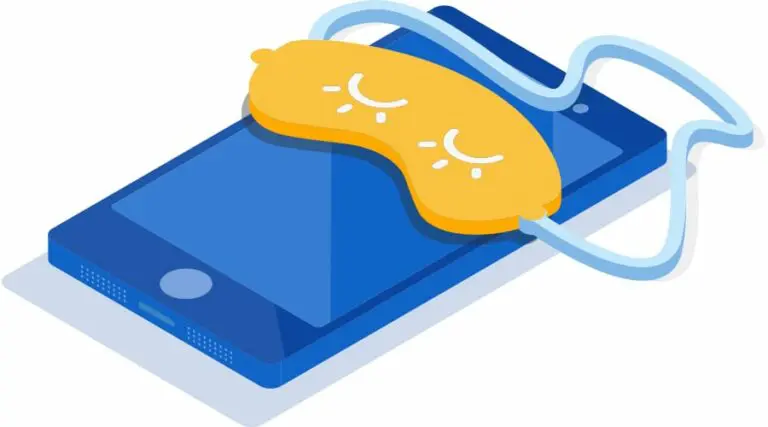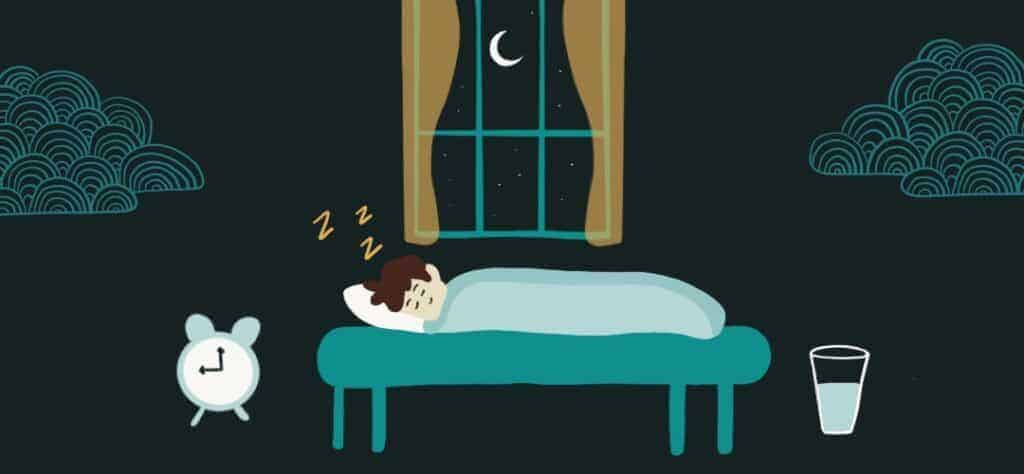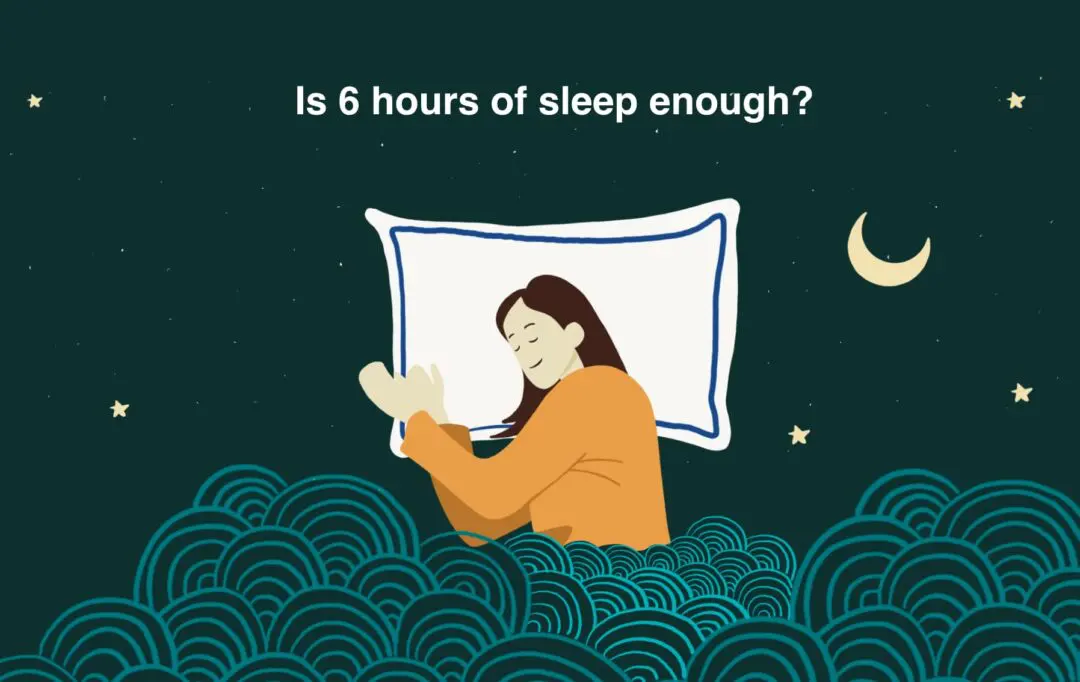Stages of Sleep & Sleep Cycles: Everything You Need to Know
Share
Fact checked
Reviewed by experts
Updated
December 16, 2022
Quick read
5 mins to read
List of Content
Sleep quality, among other factors, depends on the stages of sleep or sleep cycles you complete through the night. It is now understood that there are 4 different stages of sleep and that each person goes through these stages multiple times during a single sleep cycle.
In this detailed blog, let us understand the various states of sleep, their importance, and much more.
What Is a Sleep Cycle?
Sleep cycle, also known as the Circadian Rhythm, makes sure that you feel sleepy and wake up at the same time in a 24-hour cycle. Your sleep is not uniform; you move through 4-5 sleep cycles during the night, and each sleep cycle is composed of four stages. The average length of these sleep cycles is 90 minutes.
You might be wondering if the length of these sleep cycles is the same. The size of the sleep cycle changes as the night progresses. The first sleep cycle is the shortest and ranges about 70-90 minutes, while the later ones are a bit longer, ranging between 90-120 minutes.
Sleep cycle changes from person to person depending on many factors such as sleeping habits, caffeine consumption, age, etc.,
What Are the Different Stages of Sleep?
Few common questions that pop up in every person’s mind are how many stages of sleep are there, and how long is a sleep cycle? This section will answer these questions.
Your sleep consists of two phases; The Non-Rapid Eye Movement and the Rapid Eye Movement. When you sleep, your body first enters the three NREM sleep stages and then finally enters the fourth REM sleep stage. The table below mentions the various sleep stages.
Classification of sleep into various sleep cycles and stages is known as sleep architecture. Before 2007, sleep stages were referred to as 5 stages of sleep. The American Academy of Sleep Medicine (AASM) updated the breakdown of sleep stages into 4 stages in 2007.
NREM Sleep Patterns
NREM sleep consists of three stages. Let’s understand the stages of NREM sleep in detail.
Stage 1 (N1)
Stage 1 sleep is also known as the N1 stage; your body starts to relax in this stage. You may experience changes in brain activity, heavy and rolling eye movements, muscle contractions, or free-falling impressions. The length of stage 1 sleep is about 1-5 minutes.
Your sleep can easily be disturbed in this stage, but you can quickly move into stage two if there are no interruptions. You spend the least time in this stage as the night progresses.
Stage 2 (N2)
During stage two of your sleep cycle, your body temperature starts to drop; slow eye movements begin to stop, heartbeats become sluggish, and your muscles begin to contract and expand. Your brain activity slows, but there are short rounds of actions that prevent you from waking up through external factors.
Stage 2 sleep lasts for around 20-25 minutes during the first sleep cycle, gradually increasing as the night progresses. An average adult spends around half of their sleep in this stage.
Stage 3 (N3)
Stage 3 is also known as the deep sleep stage. During this stage, muscles contract and expand, and the breathing rate decreases.
During the deep sleep stage, your sleep waves also known as brain waves slow down considerably and become delta waves, making it difficult for you to wake up. The delta waves are responsible for all the significant therapeutic changes like body repair, cell reproduction, injury healing, strengthening of immune systems during this stage. The deep sleep stage also boosts your creativity, insightful thinking, and brain memory.
N3 sleep cycle length is around 20-40 minutes during early sleep stages, but as the night progresses, stage 3 sleep becomes shorter, and we spend maximum time in REM sleep.
REM Sleep Patterns
Stage 4
During REM sleep, brain activity increases substantially. All your body functions right from blood pressure, eye movements, breathing, and heart rate picks up speed in this stage. Your body also experiences temporary paralysis, with exceptions to eyes and muscles as they are responsible for breathing.
The weird dreams scaring you all day also occur in stage 4 sleep, thanks to the increased memory-forming capacity of the brain in this stage. REM sleep improves learning power and creativity.
REM sleep occurs when you are asleep for at least 90 minutes. The initial REM cycle stage is around 5-10 minutes, while the later ones last for about an hour. As the night progresses, the REM stages get longer. An adult spends about 25% of his sleep time in REM sleep.
Importance of Sleep Stages
By now, you might have understood the various sleep stages and might be wondering about their importance. Sleep stages allow the necessary therapeutic changes in the body; if you do not get sufficient deep sleep, it may lead to heart disease, dementia, diabetes, Alzheimer’s disease, sleepwalking, faulty memory, and much more.
Sleepers whose early sleep stages are disrupted due to sleep apnea or insomnia may find it difficult to enter the deep and REM sleep stages.
Factors That Affect Sleep Stages
Sleep stages vary from person to person, and many factors affect the sleep stages. The most important factors are listed below.
Age
With age, the sleep time in each stage changes drastically. Infants spend about 50% time in REM sleep and enter the REM stage when they fall asleep. As they grow old and become five, they spend only 25% of their sleep in the REM stage, similar to an adults sleep cycle.
Sleep Schedule
Irregular sleeping patterns over a period lead to an abnormal sleep cycle.
Lifestyle Habits
Excessive consumption of alcohol, caffeine, and cigarettes may affect your sleep stages adversely.
Sleep Disorders
Sleep disorders such as sleep apnea, insomnia, and restless leg syndrome can cause multiple interruptions in sleep leading to an abnormal sleep cycle.
Other Health Conditions
Health conditions such as Alzheimer’s disease, obesity, heart disease, and asthma also affect your sleep cycle.
How to Have a Healthy Sleep Cycle?
You cannot control your sleep cycle. However, you can take steps that improve your progression through the sleep stages during the night.
You can have a healthy sleep cycle or circadian rhythm by:
- Improving your sleep environment
- Improving your sleep hygiene
- Avoiding alcohol consumption before bed
- Sticking to a proper sleep routine
- Avoiding caffeine consumption before bed
- Increasing exposure to sunlight
If you feel sleepy during the daytime or experience sleep disorders such as sleep apnea or insomnia, consult a doctor to improve your sleep cycle.
The Final Word
A healthy sleep cycle leads to therapeutic changes like brain and body repair, cell reproduction, injury healing, strengthening of the immune system during this stage. A healthy sleep cycle also boosts your creativity, insightful thinking, and memory.
Hopefully, our guide must have helped you improve your sleep cycle with all the insights and tips.
FAQs
All the stages of sleep are equally essential, but deep sleep or stage 3 is the most important as it leads to therapeutic changes in the body.
A healthy adult needs to spend about 25% of their sleep time in the REM stage of the sleep cycle. If you sleep for 7-9 hours, then 90 minutes of REM sleep is sufficient.
An average adult needs to sleep for at least 7-9 hours daily to stay healthy.
Generally, dreams occur during the fourth stage of sleep, i.e., the REM stage of the sleep cycle.
You can get more deep sleep by following a sleep schedule, exercising regularly, avoiding heavy meals at night, avoiding alcohol and caffeine before bedtime, and creating a sleeping environment.
A healthy adult needs around 1 to 2 hours of deep sleep per 8 hours of night sleep.
This website does not offer medical advice nor professional medical services; rather, it is provided solely for educational, informational, and/or entertainment purposes. Individuals seeking medical advice should consult a licensed physician. The information provided should not be used for diagnosis or treatment of any condition, disease, or injury. When you have a medical condition, you should always talk to licensed doctor or other certified medical professional. You should never delay seeking professional medical advice or treatment based on the contents of this website. Call 911 or immediately go to the nearest emergency room if you think you may have a medical emergency. The contents of this website are provided “as-is”, Sleep Authority and its parent, subsidiaries, affiliates, employees, contributors disclaim any warranty of the information contained herein. Please contact using contact form to report any errors, omissions, misinformation, or abuse.
Sleep Authority is brought to you by Resident, the company that brings you Nectar, DreamCloud, Awara, Wovenly, Bundle, Home Well Designed and Level Sleep.







